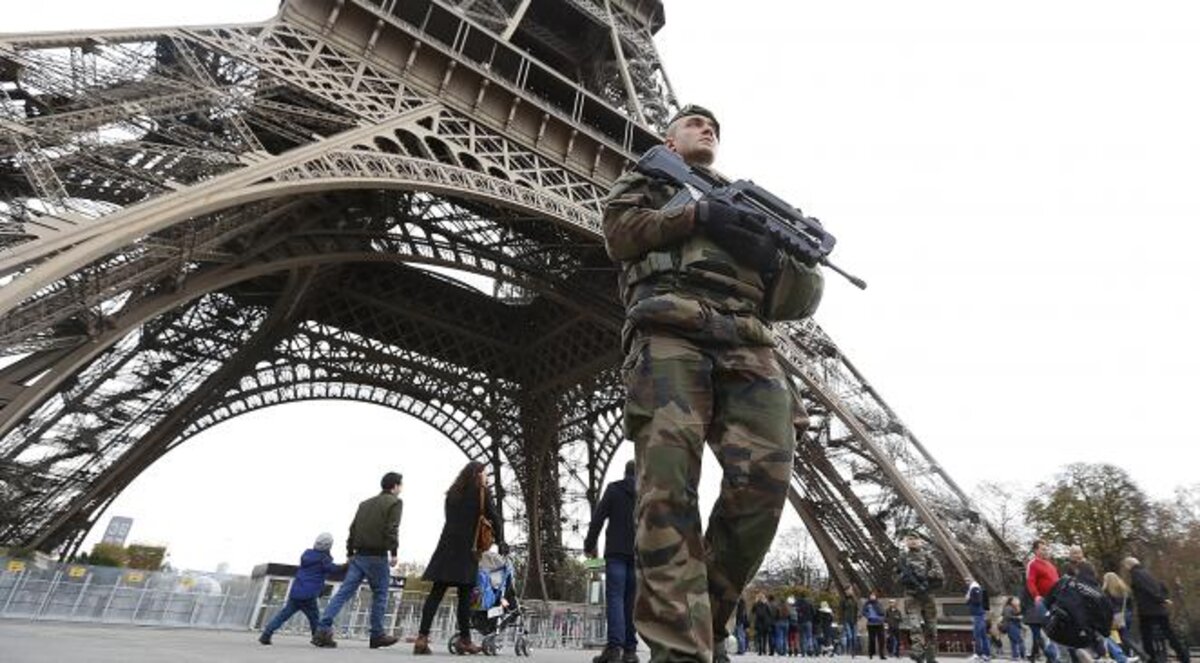The French National Consultative Commission on Human Rights (the CNCDH), an independent body which advises the government on rights issues, this week issued a scathing report on the “abuses” and “devastating collateral effects” of state of emergency powers introduced after the November terrorist attacks in Paris.
The powers include the searching, detention, and placing of people under house arrest without judicial approval, along with the banning of demonstrations and other public gatherings, and the imposition of curfews. Rights groups have denounced the vague criteria required for using the state of emergency powers, such as when an individual has a “suspicious manner”, or that the authorities have a “serious reason” for believing a person is a security threat.

Enlargement : Illustration 1

The CNCDH report comes as the French government is preparing new legislation to include state of emergency powers into the country’s constitution, in an effort to avoid courtroom challenges to their use, and new anti- terrorist laws which include stripping bi-nationals of French nationality, all of which the CNCDH opposes.
On Wednesday, French President François Hollande met with the presidents (speakers) of the upper and lower houses of parliament (the Senate and the National Assembly), when he informed them of his intention to extend the state of emergency beyond its current extended deadline of February 26th.
On the subject of the proposed legislation that will allow the stripping of French nationality from dual nationality holders who are convicted of terrorist activity, the CNCDH questioned “the pertinence and the effectiveness of such a punishment” with regard to determined terrorists, “given furthermore that it is of no use as a preventive measure”.
“In this regard, the commission deplores that the dispositions which are proposed to be introduced into the Constitution create a double difference between French citizens according to whether they are ‘French-born’ or French by acquirement, and whether they are exclusively French or have another nationality,” read the report, which was published in the form of a lengthy statement on Monday. “This type of distinction is radically contrary to all republican principles,” it stressed, adding that the commission “reiterates its total opposition to the creation of categories among the French people”.
Regarding the idea expressed by some Members of Parliament within the ruling socialist camp that the powers should be extended to include stripping French nationality also from those who hold no other nationality, the CNCDH observed that the French Civil Code prohibited any procedure that would render a person stateless and that “to go back on such a principle would constitute a major reversal” that was uncertain to be compatible with European and international law.
The commission warned against any further extensions of the state of emergency, stressing that it was “resolutely opposed” to any longterm installation of the extensive powers, notably the government’s proposition that state-of-emergency powers be written into the constitution. “The state of exception, which must remain provisional, cannot become the rule,” said the commission. “It has the only and unique aim of a return to normality […] The cessation of the state of emergency is, in all evidence, a difficult political decision.”
Regarding the application of the state of emergency since it was first introduced on November 14th, the commission observed there had been “numerous abuses” which had “devastating collateral effects” that threatened social cohesion. It pledged to be “particularly vigilant” in its monitoring of the situation.
The commission also attacked the government’s intention of widening police and administrative powers, which notably include slackening rules for the use and carrying of firearms, and extending powers for searching property without judicial control. “The biggest victory for the ‘enemies of human rights’ (terrorists or others) would indeed be to place the state of law in jeopardy through the emergence and consolidation of an illusory state of security, which would legitimise itself by the adoption of measures which more and more breach fundamental rights and liberties.”
The CNCDH is joined in its concern over the extension of state of emergency powers by the United Nations, which commissioned a panel of international independent rights experts to report on the situation in France following the three-month extension, on November 20th, of the state of emergency.
In a statement released yesterday, under the aegis of the Office of the UN High Commissioner for Human Rights, the panel of five experts said the exceptional powers had allowed for “excessive and disproportionate restrictions” on basic human rights, bemoaned the “lack of clarity and precision” of its provisions, and called on the French government not to extend the powers any further than the current February 26th deadline.
“As France debates the strengthening of measures in the fight against terrorism, and considers a reform of the criminal procedure, we call on the authorities to revise the provisions and possible reforms adopted to that end, to ensure they comply with international human rights law,” said the five experts in a joint statement.
“While exceptional measures may be required under exceptional circumstances, this does not relieve the authorities from demonstrating that these are applied solely for the purposes for which they were prescribed, and are directly related to the specific objective that inspired them.”
“Ensuring adequate protection against abuse in the use of exceptional measures and surveillance measures in the context of the fight against terrorism is an international obligation of the French State,” warned the panel, which said it had sent a series of questions to the French government about their concerns..
Meanwhile, the French League of Human Rights this week filed a challenge against the state of emergency with France’s Council of State demanding the immediate suspension of the state of emergency, arguing that continued use of the special powers introduced immediately after the November 13th Paris terrorist attacks are no longer justified.
-------------------------
- The French version of this article can be found here.
English version by Graham Tearse


